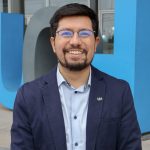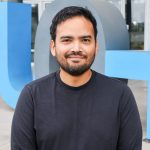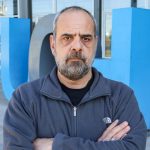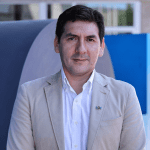Ésta busca promover actividades de investigación y desarrollo al más alto nivel, a cargo de sus académico/as e investigadores/as en el marco de proyectos científicos y tecnológicos de alcance regional, nacional e internacional, en concordancia con el Plan de Desarrollo Estratégico de la Universidad.
100% de los académicos y académicas con doctoradoInvestigación
Institutos de Investigación
Convocatorias
Cifras

208
Proyectos de investigación como responsables o co-investigadoras/es entre 2017 y 2021 (66 Fondecyt)

311
Publicaciones científicas entre 2017 y 2021 (266 en Scopus)

6
Institutos de investigación interdisciplinaria en 2021

100%
De académicas/os con grado de Doctor en 2021
Proyectos
- PYT-2026-186
- Abril 2026 - Marzo 2029
Obtención de ingredientes funcionales desde pulpa de sandía residual post cosecha para su uso en la industria de alimentos funcionales y en la agricultura
- PYT-2026-186
- Abril 2026 - Marzo 2029
Obtención de ingredientes funcionales desde pulpa de sandía residual post cosecha para su uso en la industria de alimentos funcionales y en la agricultura
- Abril 2026
Evaluation of microplastic pollution on soil microbiota, biogeochemistry, and crop health in agricultural systems
- Abril 2026
Evaluation of microplastic pollution on soil microbiota, biogeochemistry, and crop health in agricultural systems
- 11261116
- Abril 2026 - Marzo 2029
Cooperative control of intelligent agents using reinforcement learning to support the implementation of AC/DC multi-microgrids in the energy industry, from regions in Chile to the rest of the world.
- Abril 2026
Language and interculturality: An examination of mediated practices in the conceptualization and implementation of interculturality in the Spanish, Ancestral Languages, and English as a foreign language school subjects
Últimas Publicaciones
- REVISTA Front. Chem. Biol
- 1970
A Mini Review of mycotoxin’s occurrence in food in South America in the last five years: research gaps and challenges in a climate change era
- REVISTA Journal of Logical and Algebraic Methods in Programming
- 2026
Nominal Anti-Unification Modulo Equational Theories
• Alexander Baumgartner • Daniele Nantes-Sobrinho
- REVISTA Spectrochimica Acta Part A: Molecular and Biomolecular Spectroscopy
- 2026
Quality control of entomopathogenic nematodes through infrared spectroscopy (FTIR-ATR, 2D-COS): Tracing, modelling and prediction
• Ernesto San Blas • Gabriel Paba • Edgar Portillo • Mayamarú Guerra • Patricia Morales Montero
- REVISTA Plant Disease
- 2026
First Report of Fusarium clavum Causing Fusarium Wilt Disease on Watermelon in Chile
• Set Madian Pérez Fuentealba • Nicole Cortez Jorquera • Jenny Laura Soto Basaez • Rodrigo Iván Contreras Soto
- REVISTA Plant Disease
- 2026
First Report of Fusarium clavum Causing Fusarium Wilt Disease on Watermelon in Chile
• Set Madian Pérez Fuentealba • Nicole Cortez Jorquera • Jenny Laura Soto Basaez • Rodrigo Iván Contreras Soto
Novedades destacadas
InES Género UOH culmina con éxito curso de Liderazgo Científico para Mujeres Investigadoras 2025
En la ceremonia de cierre se reconoció a las 16 académicas e investigadoras postdoctorales que participaron de esta instancia formativa, que busca fortalecer habilidades clave para el desarrollo de sus carreras científicas.
Saber másUOH se adjudica 9 proyectos Fondecyt Regular 2026
Académicas y académicos de cuatro institutos de nuestra casa de estudios desarrollarán estas iniciativas.
Saber másUOH consolida su liderazgo en ciencia y territorio con adjudicación de Concurso Nuevos Nodos Macrozonales de ANID
El proyecto, liderado por nuestra casa de estudios, obtuvo la mejor calificación a nivel nacional, consolidando su rol como institución articuladora del ecosistema de ciencia, tecnología e innovación en la macrozona O’Higgins – Maule.
Saber más


















